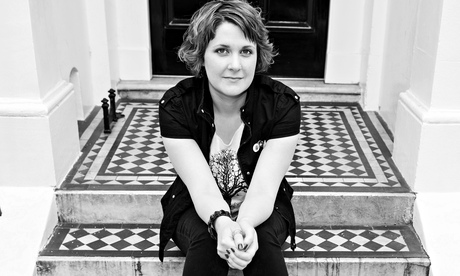
I have a confession to make: I am an adult and I only read YA (and children's books.)
Obviously, I should be ashamed. I should be reading literary fiction – at least, according to Ruth Graham, who wrote this article for The Slate slamming adults like me who were happy to flourish their kids' edition jackets of Harry Potter on the daily commute.
There's a lot to disagree with in Ruth Graham's article – Matt Haig is always eloquent on the dangers of book snobbery and Kathleen Hale's colourful and humourous defence contains incisive comments about the history of elitism.
Needless to say I'm not a fan of literary self-loathing – and I'm not a fan of Graham's underlying assumption that YA "could plausibly be said to be replacing literary fiction on the lives of adult readers".
There's no qualification of this statement despite it being the point around which she focuses her argument: adults should seek a higher level of literature. One that is serious. Complex. Ambiguous. Apparently literature should confound and discomfit and present characters with whom it is difficult to empathize. The literature that I, as a full-grown adult, should seek will bring me a "special reward".
Obviously Graham has not read On the Jellicoe Road by Melina Marchetta. (Something that further frustrates is the fact that Graham's article is limited to "real" books, but her dismissal is not – try reading The Knife of Never Letting Go and getting back to me about satisfying endings, ambiguity and difficult characters… but then it is The Fault In Our Stars season and no one outside the YA readership can see beyond the John Green giant.)
But I don't find the defence of saying that YA does everything that adult literature does very satisfying – if there were no difference at all, there would be no way of preferring one over the other. And I definitely have a preference. Here's my real objection: Ruth Graham assumes that literature is a means to an end. That it will bring to those who partake something beyond the experience of reading. I do not believe this is true. For me, reading is an end in itself – I do not read novels to transcend my intellectual boundaries. I read because my soul sings when I'm lost in a good narrative or caught up with characters I wish were real. I read because I love reading, not because I crave the reward of being stretched. There is no intrinsically beneficial reason why I should value complexity over simplicity, or ambiguity over clarity. What Ruth Graham seeks from novels is not what I seek from novels, but that does not make me a lesser adult than her. It makes me a different one. Something that YA has always kept in the forefront of my mind – a concept too simple for adult consumption - is that difference is something to be celebrated, not shamed.
Non Pratt is the author of Trouble, a teen/YA book published this year.
Do you think it's fine for adults to read YA and teen lit? Share your thoughts on Twitter @GdnChildrensBks (and check out #PromoteaYAinstead), on our Teen Facebook page or by emailing childrens.books@theguardian.com

